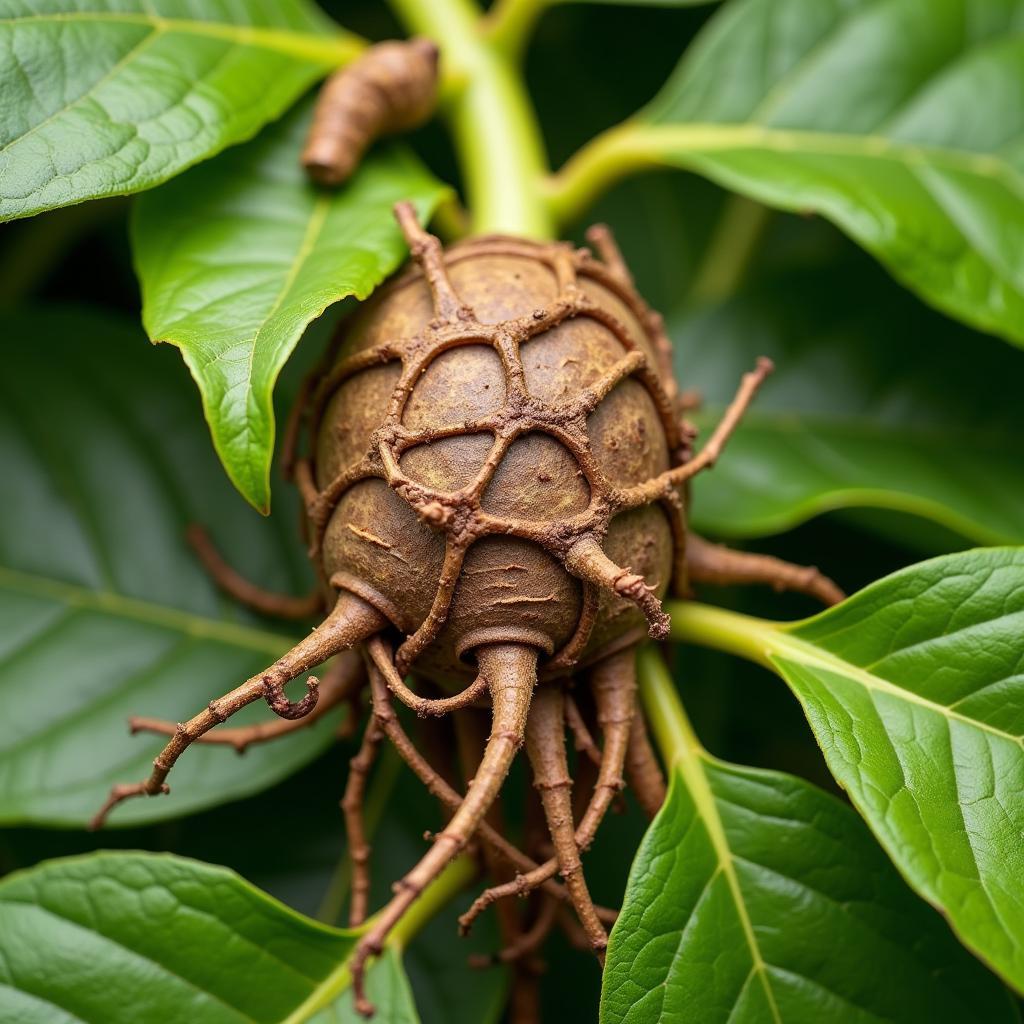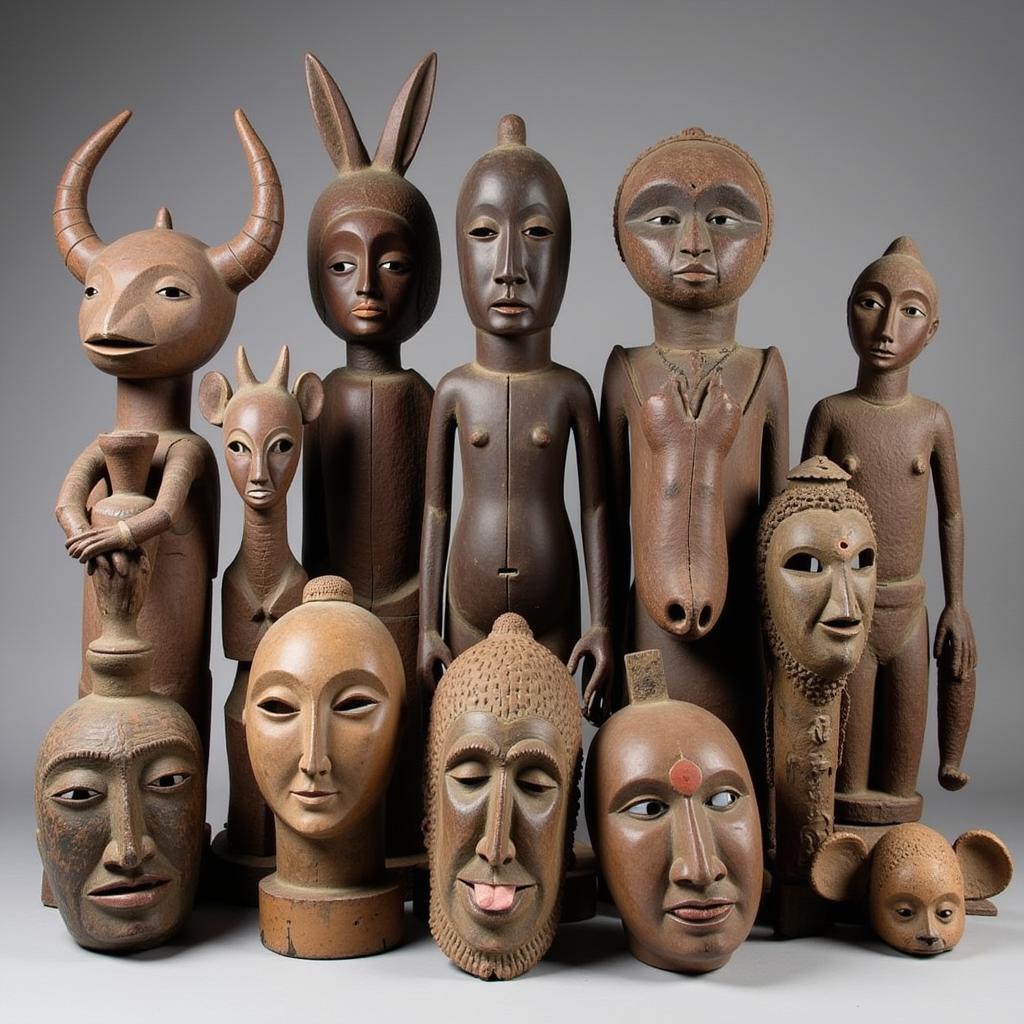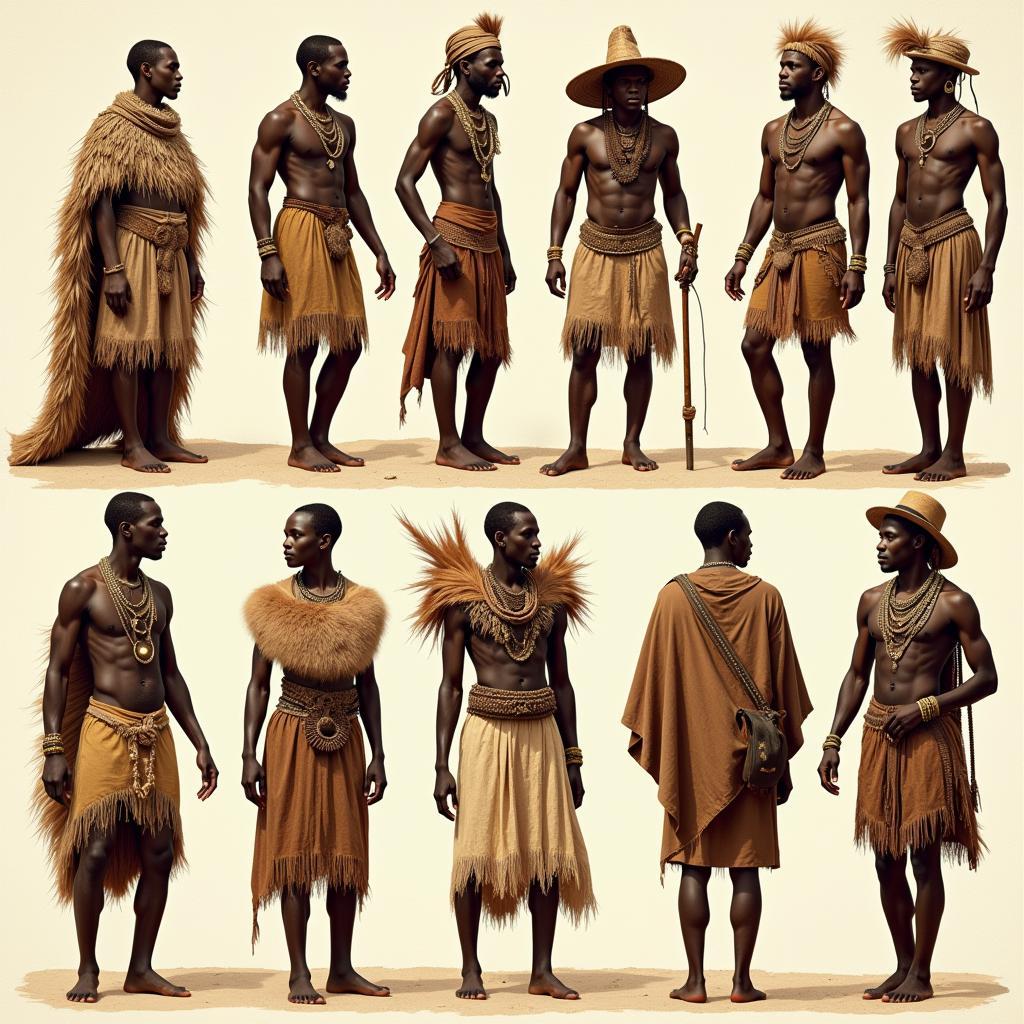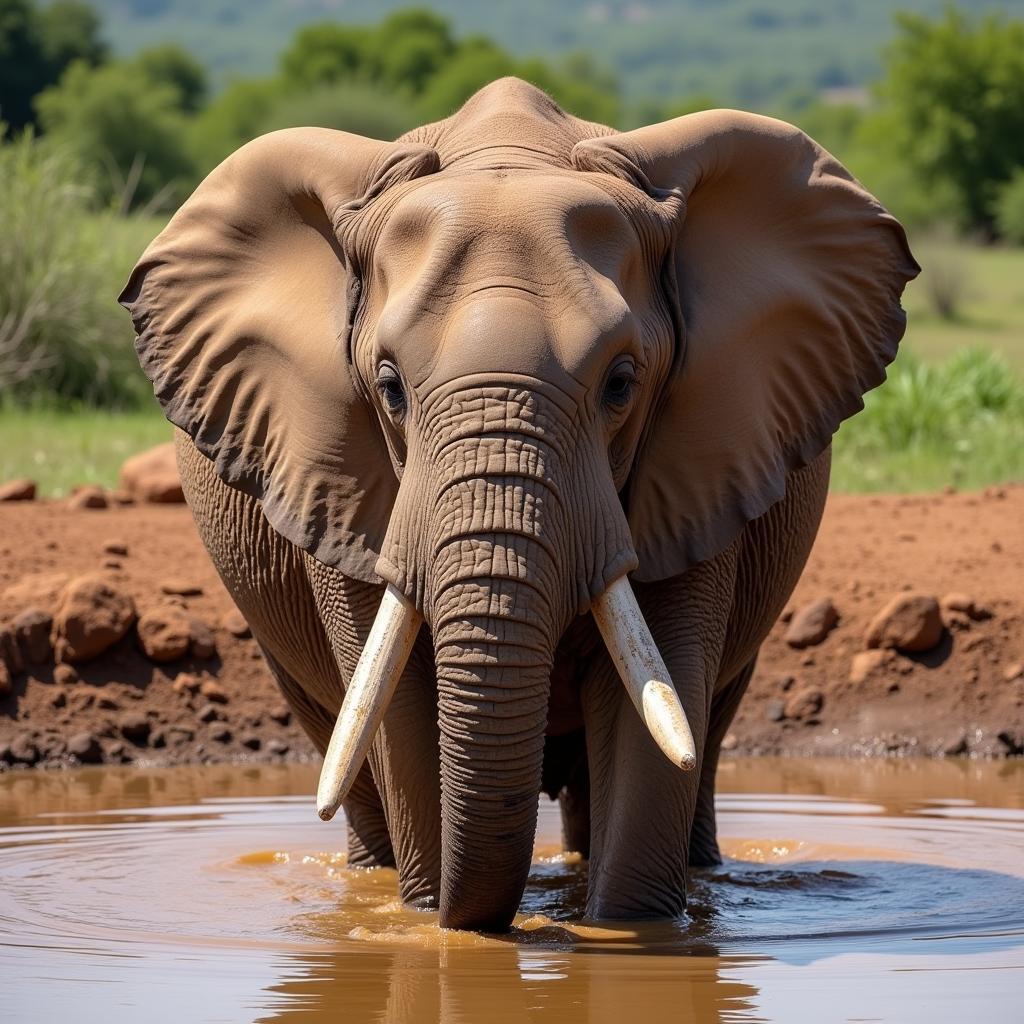African American Natural Hairstyles: A Celebration of Culture and Beauty
African American Natural Hairstyles are a powerful expression of identity, heritage, and self-love. From intricate braids to voluminous afros, these styles embrace the natural texture of Black hair, celebrating its versatility and beauty. This article delves into the rich history, diverse styles, and practical care tips for maintaining healthy and vibrant natural hair.
Exploring the History of African American Natural Hairstyles
Natural hair has a profound significance within the African American community. Historically, hairstyles served as markers of status, tribe, and even marital status in many African cultures. During the era of slavery, these traditions were suppressed, and natural hair was often viewed negatively. The 20th century witnessed a shift, with the Civil Rights Movement sparking a resurgence of natural hair as a symbol of Black pride and resistance. This movement challenged Eurocentric beauty standards and affirmed the beauty of natural coils and kinks.
The Natural Hair Movement: A Journey of Self-Acceptance
The natural hair movement has continued to evolve, gaining momentum in recent decades with the rise of social media and online communities. This movement encourages self-acceptance, celebrates diversity, and provides a platform for sharing knowledge and experiences related to natural hair care. It emphasizes the importance of embracing one’s natural texture and rejecting harmful chemical treatments that can damage hair and scalp.
Popular African American Natural Hairstyles: Embracing Versatility
African American natural hairstyles offer a breathtaking range of options, allowing individuals to express their unique personalities and style preferences. From protective styles like braids and twists to wash-and-go looks, the possibilities are endless. Some popular styles include:
- Braids: Offer versatility and protection, ranging from classic box braids to intricate cornrows.
- Twists: Similar to braids, twists provide a stylish and low-maintenance option.
- Locs: A timeless style that symbolizes spirituality and connection to African heritage.
- Afro: A powerful statement of natural beauty, embracing the voluminous texture of natural hair.
- Wash-and-Go: A simple yet elegant style that celebrates the natural curl pattern.
Caring for Your Natural Hair: Tips for Healthy Growth
Maintaining healthy natural hair requires a dedicated routine and the use of appropriate products. Understanding your hair type and porosity is crucial for choosing the right products and techniques.
Essential Tips for Healthy Natural Hair:
- Moisturize Regularly: Natural hair tends to be dry, so regular moisturizing is essential.
- Deep Condition: Deep conditioning treatments help to replenish moisture and strengthen hair.
- Protective Styling: Protective styles like braids and twists can help to minimize breakage and retain length.
- Avoid Heat Styling: Excessive heat can damage natural hair, so it’s best to minimize its use.
- Healthy Diet: A balanced diet rich in vitamins and minerals promotes healthy hair growth.
“Healthy hair starts from within,” says Dr. Anika Nkosi, a renowned trichologist specializing in Afro-textured hair. “Nourishing your body with the right nutrients is just as important as using the right hair products.”
Conclusion: Embrace Your Natural Crown
African American natural hairstyles are a testament to the beauty and resilience of Black hair. By embracing our natural textures, we celebrate our heritage and empower ourselves to define our own standards of beauty. From the historical significance to the diverse styling options and essential care tips, African American natural hairstyles are a powerful expression of identity and self-love. So, embrace your natural crown and let it shine!
FAQ
- What are some common misconceptions about natural hair? One common misconception is that natural hair is difficult to manage. With the right knowledge and products, natural hair can be just as manageable as any other hair type.
- How often should I wash my natural hair? Washing frequency depends on hair type and lifestyle, but generally, washing once or twice a week is sufficient.
- What are some good products for natural hair? Look for products that are specifically formulated for natural hair, focusing on moisturizing and strengthening ingredients.
- How can I protect my natural hair while sleeping? Use a satin scarf or bonnet to protect your hair from friction and breakage while sleeping.
- What are some tips for transitioning to natural hair? Be patient, research different styles and products, and connect with online communities for support and advice.
- How can I find a stylist specializing in natural hair? Ask for recommendations from friends or search online for stylists in your area who specialize in natural hair.
- What are some protective styles for natural hair? Braids, twists, locs, and wigs are all popular protective styles.
Need More Help?
For personalized advice on African American natural hairstyles, contact us!
Phone: +255768904061
Email: kaka.mag@gmail.com
Address: Mbarali DC Mawindi, Kangaga, Tanzania
Our 24/7 customer service team is here to assist you.



